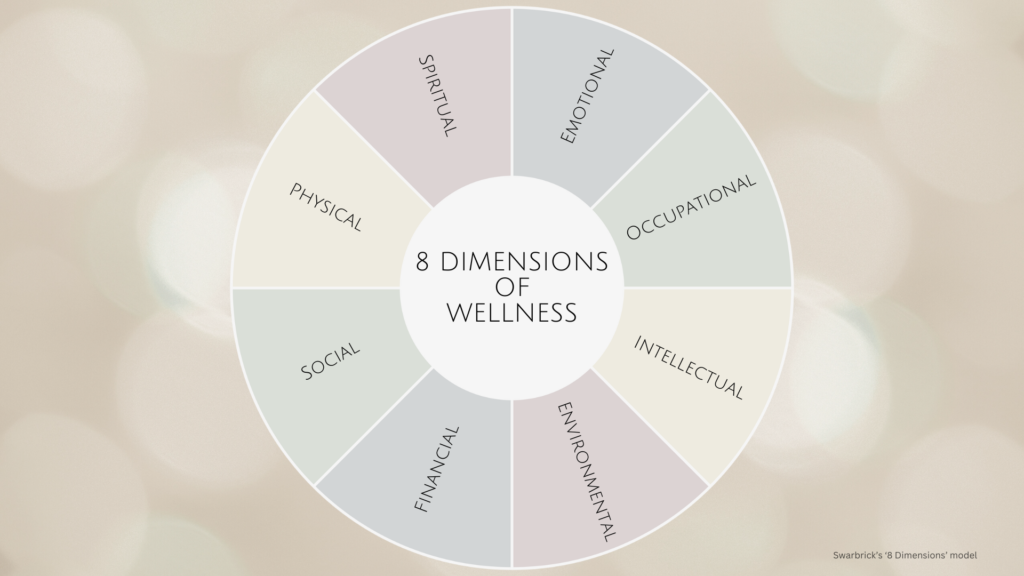Recognizing Social Connections and a Strong Support System
Feeling connected, experiencing a sense of belonging, and maintaining a strong support system are crucial for overall wellness. These elements significantly impact both mental and physical well-being. This blog delves into the importance of social connections and support systems, highlighting their effects on mental health, especially for professionals in high-stress corporate environments. It also explores how social networks can influence physical health and reduce stress.
The Importance of Social Support in Mental Health
Social support is a vital component of mental health, especially for professionals facing the pressures of corporate environments. Research has shown that social support significantly alleviates depression in these professionals. The availability and quality of social support can vary based on location, further influencing mental health outcomes (Lin et al., 2022). This indicates that having a strong support network is not just beneficial but necessary for maintaining mental health.
Psychological Resilience and Supportive Relationships
The capacity to bounce back from challenges, known as psychological resilience, is significantly influenced by social support. Supportive relationships play a crucial role in buffering against negative emotional effects, promoting mental health, and emotional well-being (Smith et al., 2020). Having a robust support system can help individuals navigate through tough times and emerge stronger.

Physical Health Benefits of Social Connections
Social connections extend their benefits beyond mental health to physical well-being. Strong social networks correlate with better physical health outcomes (Berkman & Glass, 2000). For example, professionals who maintain supportive relationships at work tend to experience lower stress levels and improved cardiovascular health than those in more isolated work environments. Individuals with substantial social support also demonstrate lower rates of chronic illnesses, improved immune function, and greater longevity.
Stress Reduction through Social Support
The role of social support in stress reduction is another critical aspect of wellness in corporate settings. Social support reduces stress through biochemical mechanisms, such as the release of oxytocin—a hormone linked to bonding and stress relief (Carter, 2020). Supportive interactions among colleagues can buffer the effects of stress, promoting psychological resilience and overall well-being. This highlights the importance of establishing and maintaining close relationships in the workplace.

Holistic Approach to Wellness
The concept of wellness encompasses various dimensions of life, including emotional, environmental, financial, intellectual, occupational, physical, social, and spiritual dimensions (Garcia, 2015). Each dimension contributes to an individual’s overall quality of life, highlighting the importance of a holistic approach to wellness. The Person-Environment Fit Theory posits that stress arises when there is a mismatch between an individual’s characteristics and the demands of their work environment (Prolo & Chiappelli, 2007). Therefore, it’s important to review these dimensions when choosing a profession or assessing if a work environment is a “good fit.”
Conclusion
Recognizing and cultivating social connections and a robust support system is fundamental for enhancing mental and physical health in high-stress corporate environments. The interaction between social support, psychological resilience, and physical health emphasizes the benefits of nurturing supportive relationships in professional settings. By promoting social connections and resilience, professionals can effectively navigate workplace challenges, leading to improved well-being overall. As society and workplaces evolve, the role of social support in maintaining mental and physical health remains a critical area of focus for researchers and practitioners alike. Prioritizing employee well-being and support in the workplace can lead to less turnover and more employee satisfaction (Modern Health, 2023).

Reflection Prompt
Take a moment to reflect on your support network.
Who are the key people in your life that you can rely on for support?
How do these relationships contribute to your overall well-being?
Consider ways you can strengthen and expand your support system to enhance your mental and physical health.
Take the Next Step in Building Your Support System
Are you ready to enhance your mental, physical, and emotional well-being by strengthening your support network? At Strategic Talent Associates, we specialize in helping professionals like you build and maintain strong, supportive relationships that contribute to greater ease in your work.
Contact us today for a Discovery Session! Whether you need expert content writing, strategic business and marketing coaching, or personalized guidance to improve your life and workplace environment, we’re here to help you succeed.
Click here for a complimentary Discovery Session to learn more about our services and how we can support your journey towards a healthier, more connected life.
References
Berkman, L. F., & Glass, T. (2000). Assessing the physical health effects of social networks and social support. Annual Review of Public Health, 21(1), 413-416.
https://www.annualreviews.org/content/journals/10.1146/annurev.pu.05.050184.002213
Carter, C. S. (2020). What’s love got to do with it: Role of oxytocin in trauma, attachment, and resilience. PubMed. https://pubmed.ncbi.nlm.nih.gov/32512017/
Garcia, C. (2015). What are the Eight Dimensions of Wellness in Your Life? Colorado Nurse, 115(1), 6. https://eds-p-ebscohost-com.ezproxy.snhu.edu/eds/pdfviewer/pdfviewer?vid=1&sid=46dc9680-f718-450c-8c4a-faa4c279dde7%40redis
Lin, X., Yu, W., Wang, L., & Zhang, Y. (2022). The effect of social support on depression among economically disadvantaged college students: The mediating role of psychological resilience and the moderating role of geography. PubMed Central. https://www.ncbi.nlm.nih.gov/pmc/articles/PMC9965511/
Modern Health. (2023, May 26). Creating a global culture of workplace Well-Being. https://www.modernhealth.com/post/creating-culture-of-organizational-wellbeing
Prolo, P., & Chiappelli, F. (2007). Immune suppression. In Elsevier eBooks (pp. 470–477). https://doi.org/10.1016/b978-012373947-6.00220-8
Smith, R., Murphy, J., & Coats, J. (2020). Effects of envy on depression: The mediating roles of psychological resilience and social support. PubMed Central. https://www.ncbi.nlm.nih.gov/pmc/articles/PMC7324738/





